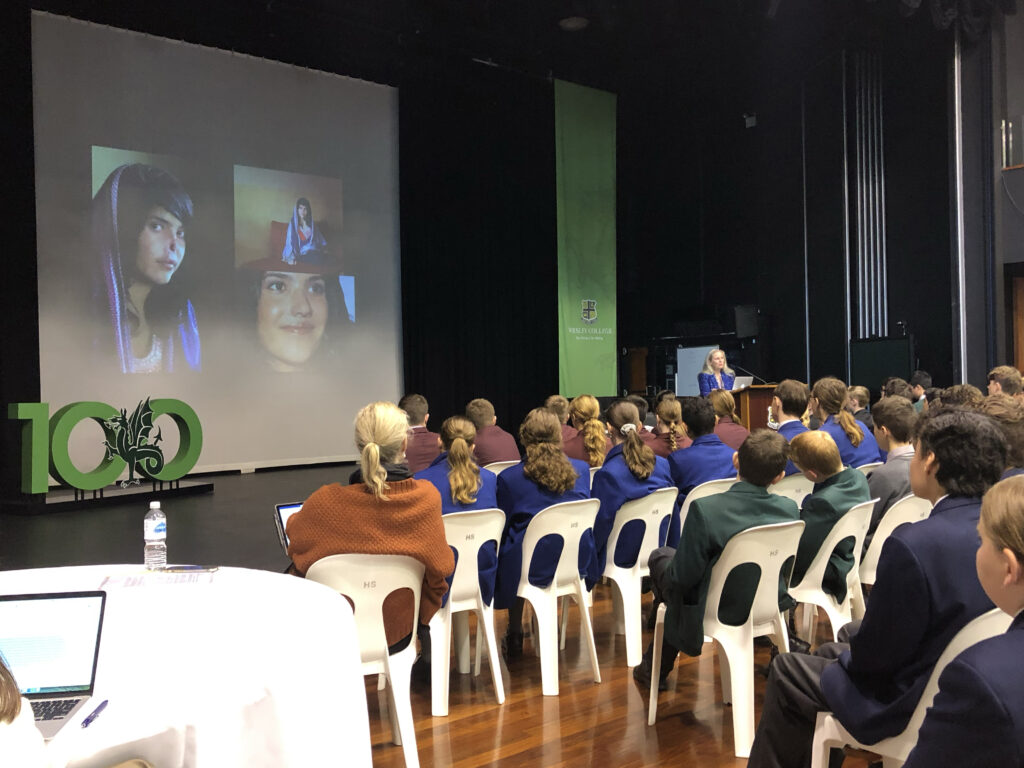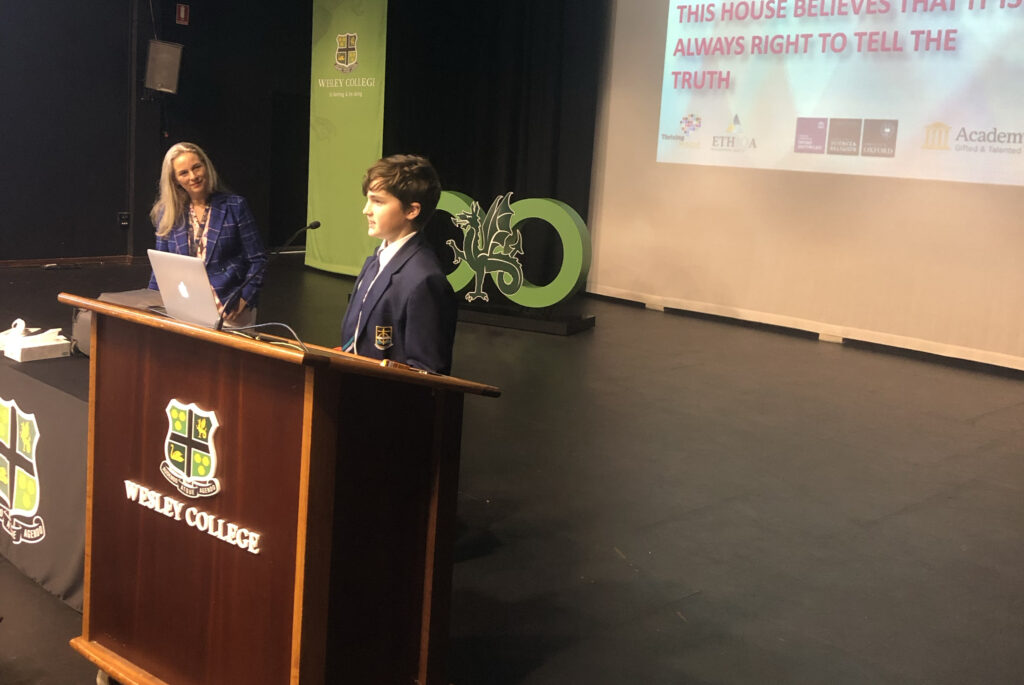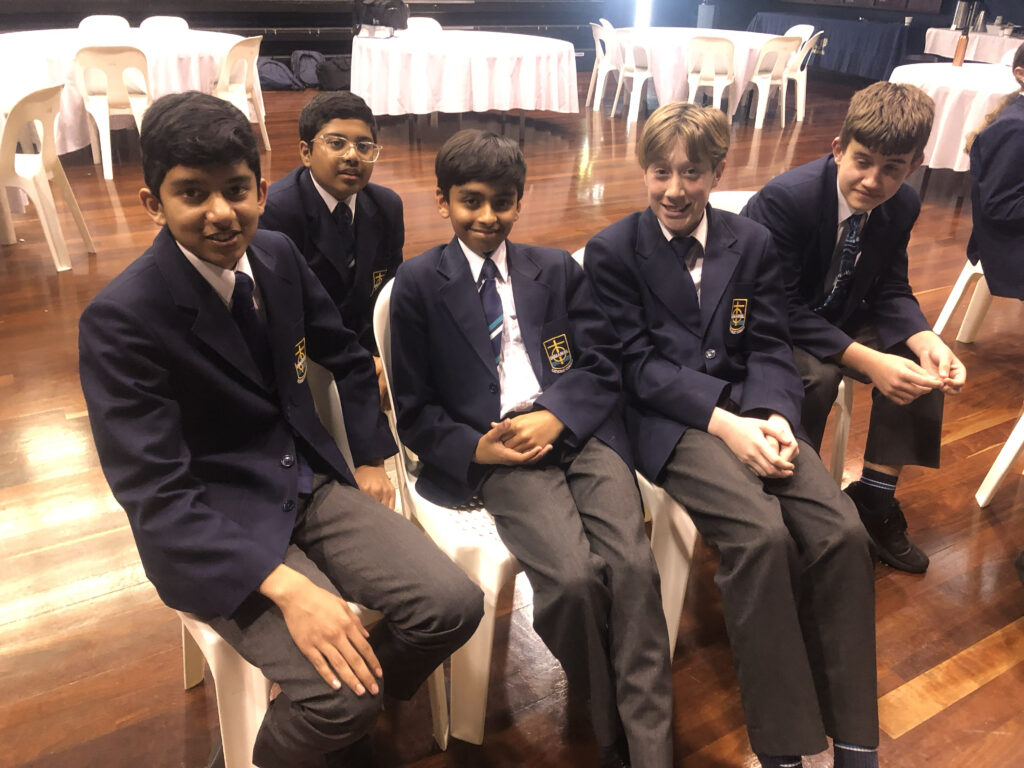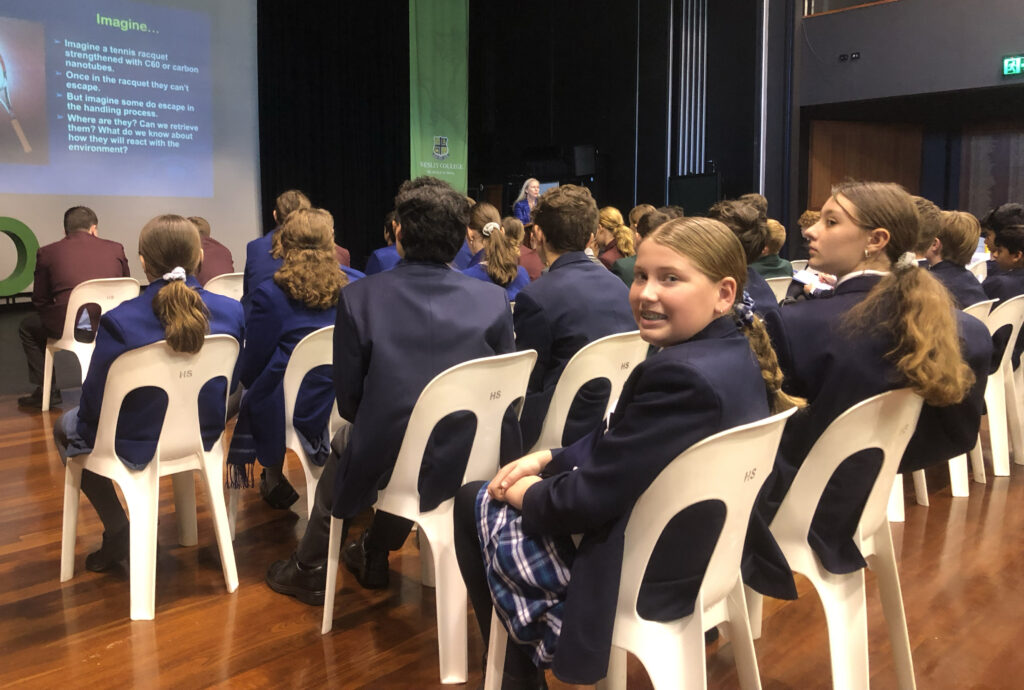“If we can’t tolerate everything, then how do we decide what to tolerate?”
Julie Arliss, from Oxford University, stimulated some inter-school philosophical discussion. Julie pitched this question, in relation to an act of unfathomable cruelty against a woman in Afghanistan, to our Emmanuel Catalyst students during the Gifted and Talented Excursion at Wesley College.


Ten of our academically advanced students across Year 7 to 9 were given an opportunity to meet similar-minded students from Carmel, Newman College, St Mark’s and Wesley College and participate in a round-table ‘minds-on’ activity of debate, critical thought, problem-solving and consequentiality.
According to some of our brightest students, one of the most popular aspects of the day were the real-world considerations and applications of nanotechnology. Julie, who normally works with fifth-year medicine students in the UK, played a critical role in the science communication aspect regarding the genetically sequenced Oxford-AstraZeneca COVID-19 viral vector vaccination. She dispelled common misconceptions regarding the general public’s perception of the speed at which the vaccine had been developed. Julie commented on the nano-technology component of the vaccine and how it had been long-developed prior to the pandemic.
In a separate activity toward the end of the excursion, Xander (Year 7) pictured above, demonstrated strength and determination during his public speaking in front of about fifty students and ten staff to argue against the notion that it is always right to tell the truth. Xander put up a solid argument which was met with praise from his peers and students from the other schools.


Pictured above are the five Year 8 boys Daivik, Nischal, Krish, Jayden and Jacob. They had a chance to contemplate Elon Musks Neuralink which is ‘like a Fitbit in your skull with tiny wires’; a brain-chip implant designed to allow people who are paralysed to operate technology such as smartphones with their thoughts.
Isla (Year 7) was listening to the presentation on the nano-synthesis of ‘meat’ using only plant-based matter.
The day’s sessions provided an intriguing insight into environmental, social and economic considerations for the future which will need to be directed by some of our brightest minds.
Mr Mark Cornish
Head of Learning Excellence
